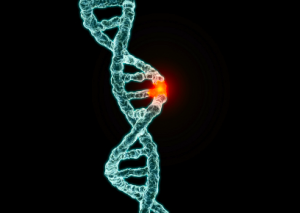 The following blog is excerpted from a Center for Disease Prevention and Control (CDC) blog and raises important issues regarding genomic (genetic) testing.
The following blog is excerpted from a Center for Disease Prevention and Control (CDC) blog and raises important issues regarding genomic (genetic) testing.
Campaigns against public spitting in the 19th century were largely driven by concerns about the spread of tuberculosis. However, at the beginning of the 21st century, spitting seems to be making a comeback since it is a common source of DNA for testing. Over the past few years, several companies have begun offering personal genomic tests online to the public. There have been famous images of “spit parties”, where celebrities are seen filling tubes with saliva to ship for DNA testing. Getting information on one’s genes has been promoted as fun, as part of social networking, and as a basis for improving health and preventing disease.
When it comes to spitting to improve one’s health, we say: think before you spit. Our knowledge of the potential benefits and harms of these tests is incomplete at best. Despite exciting research advances in genomics of common diseases, there is still much to learn about what this information means and how to use it to prevent disease. A little bit of incomplete or inaccurate information may even be harmful.
There are at least 2 key questions to consider when deciding whether personal genomic tests are worth your spit. First, how well can these tests detect or predict particular health conditions? Most common diseases, such as diabetes, cancers, and heart disease, are caused by multiple genes and interactions with environment and behavior. Therefore, a risk estimate based only on genes is bound to be uncertain and can rapidly change based on new information. Different companies may even arrive at different interpretations of the same information. In 2010, a special undercover investigation by the Government Accountability Office found that tests by different companies of the same samples gave contradictory results. Second, can the test provide additional information that leads to better health? If the test indicates increased or decreased risk for a disease, what can be done about it? Will the test tell us more than what we know to do already?
Many interventions for reducing one’s risk for common diseases–such as smoking cessation, weight loss, increased physical activity, and blood pressure control–are beneficial regardless of a person’s genetic background. In the words of one consumer who responded to the CDC podcast on personal genomics in 2010: “…seems one should just assume you have many health risks, then take really good care of yourself to lessen risks. Pretend you did the tests. Get ‘pretend-scared’ straight! You can then motivate yourself to keep healthy weight, exercise, reduce stress, get enough rest, consume healthy foods, avoid unhealthy habits, enjoy hobbies & keep mind active, build friendships & family bonds…” In fact, new data from CDC show that people who engaged in four healthy behaviors — not smoking, eating a healthy diet, getting regular physical activity, and limiting alcohol consumption- had much lower likelihoods of dying (over an 18 year period) from cancer, cardiovascular disease and other causes than those who did not engage in all four healthy behaviors. Not smoking provides the most protection from dying early from all causes.
Several scientific studies designed to evaluate the potential impact of personal genomic information on health behavior and outcomes have been published and more are under way. Recommendations for setting scientific standards and a research agenda for personal genomics were published in 2009 by a panel convened by the Centers for Disease Control and Prevention and the National Institutes of Health. Those recommendations for scientific evaluation still hold today.
In 2008, Dr Kari Stefansson, a leading scientist in the genetics community and founder of one of the companies that offer personal genomic tests said: “I am convinced that within five years every college-educated person in America is going to have a [genomic] profile like this. You cannot afford not having this.” While this prediction may or may not be fulfilled based on the evolving scientific evidence, when a valid and useful test becomes available, the public health imperative is to have such tests widely available, regardless of educational levels or other socioeconomic factors. For example, a recent national survey found that BRCA1/2 testing for breast and ovarian cancer—which is clearly beneficial for some women at high risk—is underutilized, especially among black and Hispanic women.
A very informative and inexpensive “genomic test” is available right now: family health history. An accurate, updated family health history can help healthcare providers assess the presence of many genetic conditions and whether patients and their relatives may have an increased risk for specific diseases. Family history also captures shared genetic, environmental and cultural disease risk factors.
 Geneticists, researchers, and patients joined in celebration over last week’s unanimous Supreme Court ruling involving the BRCA1 and BRCA2 genes, colloquially referred to as the “breast cancer genes.” The Supreme Court ruled that Myriad Genetics could not patent the BRCA1 and BRCA2 sequence of genes, because patents cannot be placed on that which is created organically in nature. This decision opens the door for researchers outside of Myriad Genetics to study these genes, providing more opportunities to discover early signs of breast cancer susceptibility. Karuna Jaggar, Breast Cancer Action’s Executive Director reported that this ruling was, “a tremendous victory for women with a known or suspected inherited risk of breast cancer. Today, the Court righted a wrong and has put patients’ health before corporate profits.”
Geneticists, researchers, and patients joined in celebration over last week’s unanimous Supreme Court ruling involving the BRCA1 and BRCA2 genes, colloquially referred to as the “breast cancer genes.” The Supreme Court ruled that Myriad Genetics could not patent the BRCA1 and BRCA2 sequence of genes, because patents cannot be placed on that which is created organically in nature. This decision opens the door for researchers outside of Myriad Genetics to study these genes, providing more opportunities to discover early signs of breast cancer susceptibility. Karuna Jaggar, Breast Cancer Action’s Executive Director reported that this ruling was, “a tremendous victory for women with a known or suspected inherited risk of breast cancer. Today, the Court righted a wrong and has put patients’ health before corporate profits.”
 An estimated 848, 000 men and 790,000 women will be diagnosed with some form of
An estimated 848, 000 men and 790,000 women will be diagnosed with some form of  The following blog is excerpted from a Center for Disease Prevention and Control (CDC)
The following blog is excerpted from a Center for Disease Prevention and Control (CDC) 